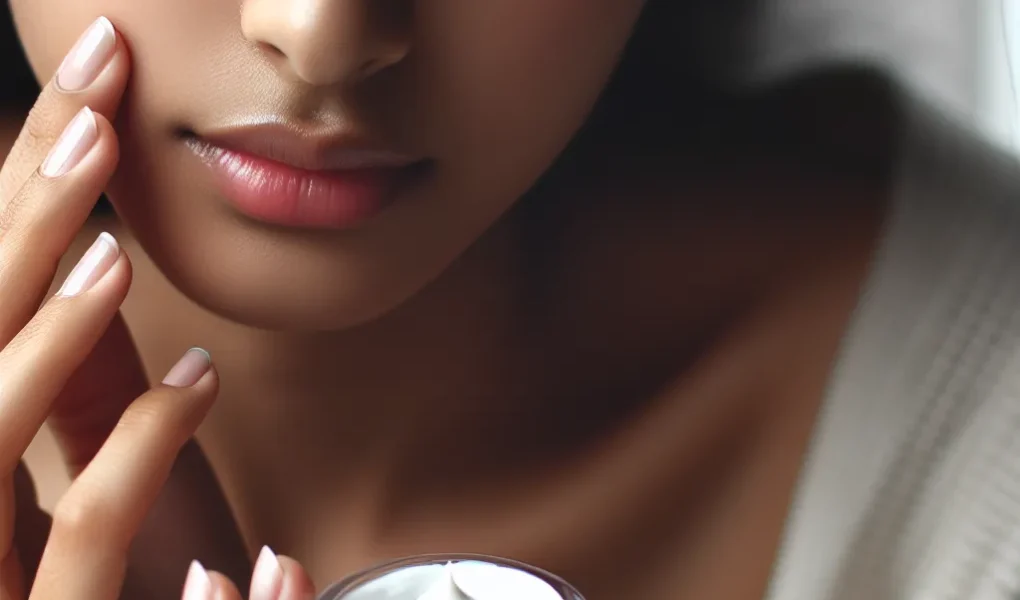Understanding Acne-Prone Skin
Understanding acne-prone skin is crucial to developing the best skincare routine for this specific skin type. Acne-prone skin is characterized by the presence of frequent breakouts, blackheads, whiteheads, and inflammation. This is typically caused by overproduction of sebum, which can clog pores and lead to the development of acne. Additionally, acne-prone skin can be sensitive and easily irritated, making it important to choose gentle and non-comedogenic skincare products. Understanding the factors that contribute to acne, such as hormonal fluctuations, genetics, and lifestyle, is essential in crafting an effective skincare regimen. By addressing these root causes and using suitable products, individuals with acne-prone skin can effectively manage their condition and promote healthier, clearer skin.
Key Ingredients for Acne-Prone Skin
When it comes to developing a skincare routine for acne-prone skin, it’s crucial to focus on key ingredients that can effectively target and manage acne while maintaining overall skin health. One of the most important ingredients to look for in skincare products for acne-prone skin is salicylic acid. This beta hydroxy acid works to exfoliate the skin, unclog pores, and reduce inflammation, making it an excellent choice for those dealing with acne.
Another essential ingredient for acne-prone skin is benzoyl peroxide. It has antimicrobial properties that can help to kill acne-causing bacteria and reduce excess oil production. However, it’s essential to use benzoyl peroxide carefully, as it can be drying and may cause irritation if not used correctly.
In addition to salicylic acid and benzoyl peroxide, incorporating products with niacinamide can be beneficial for acne-prone skin. Niacinamide is known for its anti-inflammatory properties, which can help to calm redness and reduce the appearance of blemishes.
Furthermore, including products with gentle exfoliating ingredients like glycolic acid or lactic acid can help to promote cell turnover, unclog pores, and improve the overall texture of the skin without causing irritation.
Overall, a well-rounded skincare routine for acne-prone skin should include products with key ingredients such as salicylic acid, benzoyl peroxide, niacinamide, and gentle exfoliants. When used consistently and as part of a comprehensive skincare regimen, these ingredients can help to effectively manage acne and promote clearer, healthier-looking skin.
Morning Skincare Routine for Acne-Prone Skin
Having a proper morning skincare routine is essential for those with acne-prone skin. Starting the day with the right products can help manage breakouts and improve the overall health of the skin. When crafting a morning skincare routine for acne-prone skin, it’s crucial to focus on gentle and non-comedogenic products that won’t clog pores or exacerbate existing blemishes.
The first step in the morning skincare routine for acne-prone skin is cleansing. Use a gentle, non-abrasive cleanser that is specifically formulated for acne-prone skin. Look for ingredients like salicylic acid or benzoyl peroxide, which can help to unclog pores and reduce acne-causing bacteria. It’s important to avoid over-cleansing, as this can strip the skin of its natural oils and lead to increased oil production.
After cleansing, it’s time to apply a lightweight, non-comedogenic moisturizer. Even acne-prone skin needs hydration, but it’s essential to choose a product that won’t cause breakouts. Look for moisturizers labeled as “oil-free” or “non-comedogenic” to ensure they won’t contribute to clogged pores. Additionally, opt for a moisturizer that contains ingredients like hyaluronic acid or glycerin to help maintain the skin’s moisture balance without feeling heavy or greasy.
Lastly, applying a broad-spectrum sunscreen is crucial, even on cloudy days. Acne-prone skin can be sensitive, so it’s important to choose a sunscreen that is designed for sensitive skin and won’t clog pores. Look for words like “non-comedogenic,” “oil-free,” and “fragrance-free” on the label. A sunscreen with SPF 30 or higher provides adequate protection against harmful UV rays.
Incorporating these simple steps into a morning skincare routine for acne-prone skin can make a significant difference in managing breakouts and maintaining healthy, balanced skin. Consistency is key, and with time and patience, individuals can achieve clearer, more radiant skin.
Evening Skincare Routine for Acne-Prone Skin
Developing a nightly skincare routine for acne-prone skin is essential for maintaining a clear complexion and preventing breakouts. An effective evening skincare routine should focus on gentle cleansing, exfoliation, targeted treatments, and proper hydration.
Start by cleansing your face with a gentle, non-comedogenic cleanser to remove makeup, impurities, and excess oil. Look for products containing salicylic acid or benzoyl peroxide to help combat acne-causing bacteria.
Next, incorporate exfoliation into your routine a few times a week to remove dead skin cells and unclog pores. Opt for a chemical exfoliant with ingredients like glycolic acid or lactic acid, as physical exfoliants can be too harsh and cause irritation for acne-prone skin.
After cleansing and exfoliating, apply a targeted treatment, such as a benzoyl peroxide or salicylic acid spot treatment, to address any existing breakouts or prevent new ones from forming. Be cautious not to overuse acne treatments, as this can lead to dryness and irritation.
Finally, don’t forget to moisturize! Even acne-prone skin needs hydration to maintain a healthy skin barrier. Choose a lightweight, non-comedogenic moisturizer to keep your skin balanced and hydrated without clogging pores.
Incorporating these steps into your evening skincare routine for acne-prone skin can help manage breakouts and promote clearer, healthier-looking skin over time. Consistency and patience are key when establishing an effective skincare routine, so stick to it and give your skin the care it deserves.
Targeted Treatments for Acne-Prone Skin
Targeted treatments play a crucial role in the skincare routine for acne-prone skin. When dealing with persistent acne, it’s essential to incorporate specific products that address the root causes of breakouts. One highly effective targeted treatment is salicylic acid. This beta hydroxy acid penetrates deep into the pores, exfoliating the skin and dislodging built-up sebum and dead skin cells. As a result, salicylic acid helps to prevent clogged pores, blackheads, and whiteheads, making it an excellent choice for those with acne-prone skin.
Another beneficial targeted treatment is benzoyl peroxide. This powerful ingredient is known for its antibacterial properties, making it effective in killing the acne-causing bacteria. Additionally, benzoyl peroxide helps to reduce inflammation and remove excess oil, aiding in the treatment and prevention of acne breakouts. However, it’s essential to use this treatment with caution, as it may cause dryness and irritation for some individuals.
Furthermore, incorporating topical retinoids into the skincare routine can provide significant improvements for acne-prone skin. Retinoids work by promoting cell turnover and preventing the plugging of hair follicles, ultimately reducing the formation of acne. They also have anti-inflammatory effects, helping to diminish existing blemishes and prevent new ones from forming. When using retinoids, it’s crucial to start with a lower concentration and gradually increase frequency to avoid potential irritation.
In addition to these targeted treatments, it’s essential to use non-comedogenic and oil-free products to prevent further clogging of the pores. When selecting skincare products, look for labels that indicate “non-comedogenic,” meaning they won’t clog pores, and “oil-free,” indicating the absence of pore-clogging oils.
By incorporating targeted treatments such as salicylic acid, benzoyl peroxide, and retinoids into a comprehensive skincare routine, individuals with acne-prone skin can effectively address the underlying causes of acne and achieve clearer, healthier-looking skin.
Lifestyle Tips for Managing Acne-Prone Skin
When it comes to managing acne-prone skin, a holistic approach that includes lifestyle changes can make a significant difference in the overall health of your skin. Aside from a regular skincare routine, incorporating certain lifestyle habits can help in managing acne effectively.
First and foremost, maintaining a well-balanced diet is crucial for keeping acne at bay. Consuming plenty of fruits, vegetables, and whole grains while avoiding processed and high-sugar foods can help regulate hormone levels and reduce inflammation, which are key factors in acne development.
Regular exercise not only helps in reducing stress, a common trigger for acne breakouts, but it also improves blood circulation, resulting in better delivery of nutrients to the skin and efficient removal of toxins from the body.
Adequate hydration is essential for maintaining healthy skin. Drinking plenty of water helps in flushing out toxins and maintaining skin elasticity, which can aid in preventing clogged pores and acne formation.
In addition to these lifestyle changes, managing stress levels is vital for acne-prone skin. High-stress levels can lead to hormonal imbalances that can trigger breakouts. Engaging in relaxation techniques such as meditation, yoga, or deep breathing exercises can help in managing stress and promoting clearer skin.
Sufficient sleep is also crucial for skin health. During sleep, the body repairs and rejuvenates the skin, so getting 7-8 hours of quality sleep each night is important for overall skin wellness.
In conclusion, adopting a healthy lifestyle that includes a nutrient-rich diet, regular exercise, proper hydration, stress management, and adequate sleep can complement your skincare routine and significantly improve the appearance of acne-prone skin.



